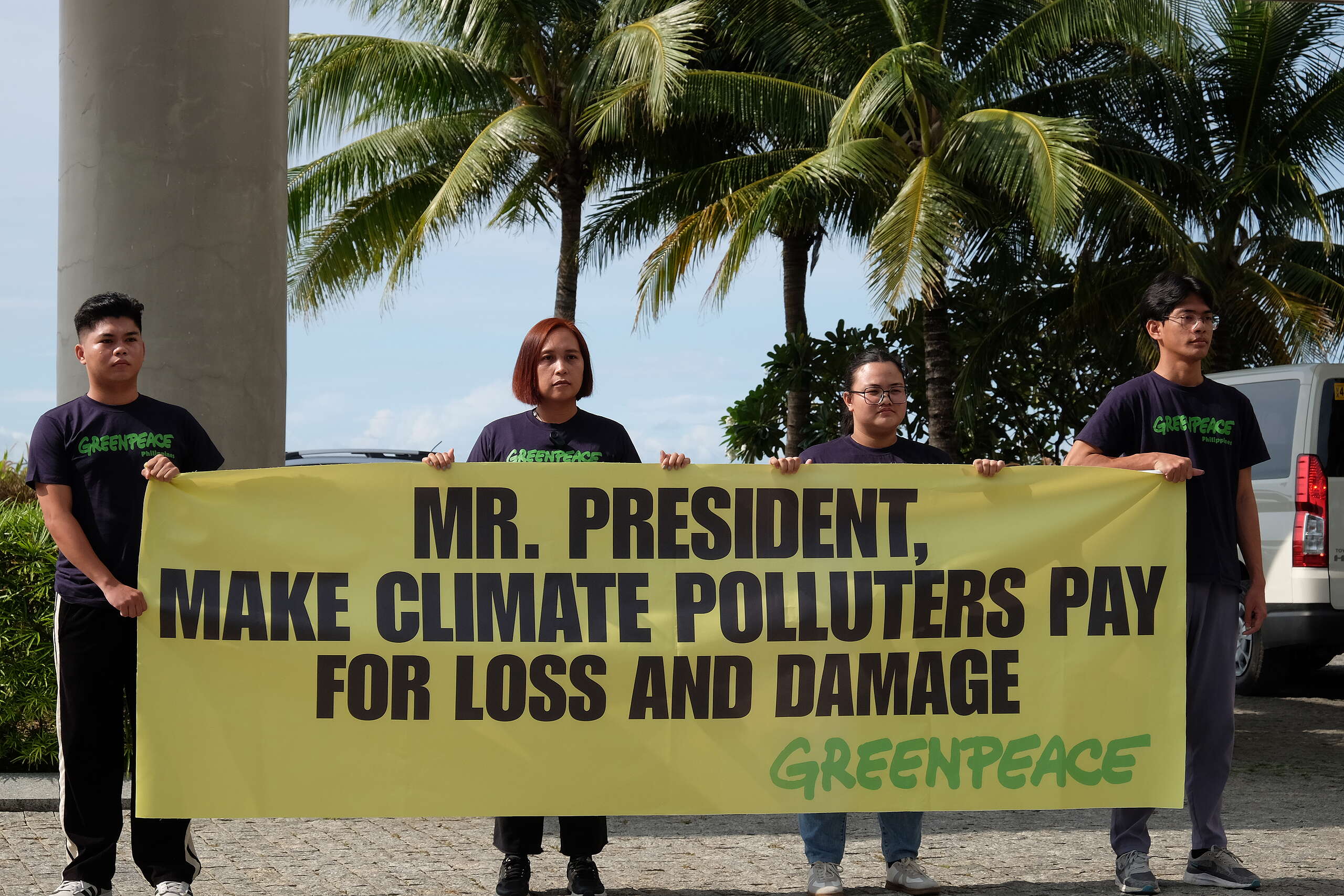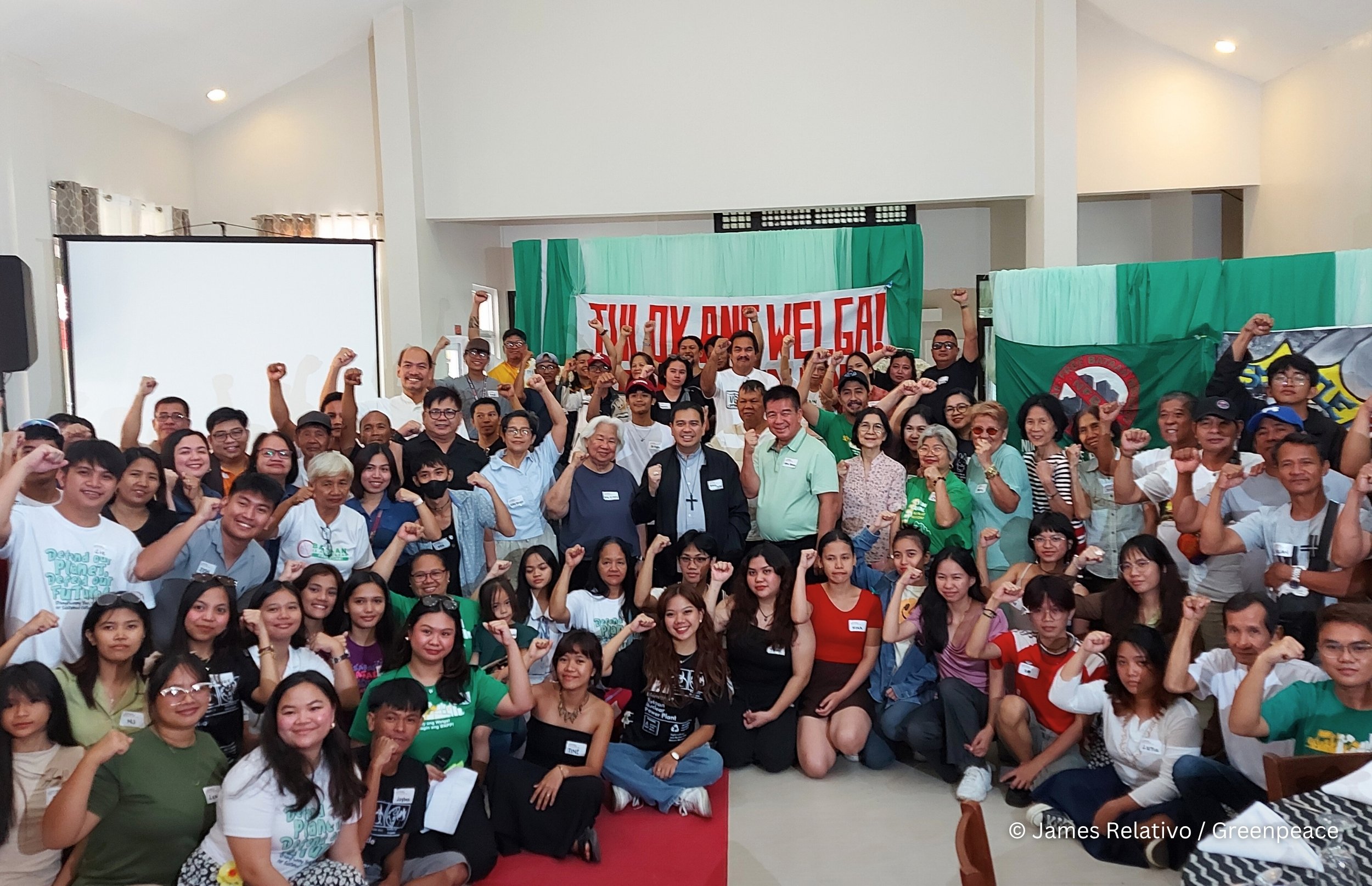After today’s Senate Committee on Environment, Natural Resources and Climate Change public hearing on the oil spill caused by the sinking of MT Terranova, Greenpeace Campaigner Jefferson Chua said:
“I think it’s important to note that there is serious concern that [the charterer implicated in the Mindoro oil spill] is the same charterer implicated in the Terranova oil spill. Unfortunately, our law insulates charterers and other actors of the value chain from liability. It’s unacceptable that companies like the subsidiary of San Miguel Corporation continue to operate with impunity, despite an apparent lack of due diligence, while being protected from liability.”
Greenpeace has previously stated that unless the companies involved are held fully accountable, it is the Filipinos, coastal communities, and local governments that will shoulder the costs for ‘clean-up,’ recovery, and long-term rehabilitation of the ecosystems and communities impacted–these are costs that should rightfully be paid not just by the shipper but also the cargo owner.[1]
“There is an urgent need to reexamine current policies that protect entities that should actually shoulder the biggest responsibility for spills. If the senate and the government as a whole are serious about this investigation and the prevention of further similar oil spill disasters, they should open this discussion publicly and ensure that this glaring policy gap is addressed.
“It’s high time—and this is an opportunity for the government—to strengthen our accountability mechanisms to really make polluters such as the subsidiary of San Miguel Corporation pay up for the loss and damage that these disasters have caused.”
Greenpeace has submitted a full position paper on the MT Terranova oil spill to the Senate Committee upon their request. Download it HERE.
Notes to editors:
[1] Greenpeace recommends:
The companies involved must show responsibility and transparency and act with more urgency in stopping the spill and compensating communities. The main priorities should be stopping the ongoing seepage, containing the spill in a manner that does not harm the environment further, and retrieving the remaining oil, so that it does not present a continuing danger to communities and ecosystems.
This must be done while urgently giving support to all the communities and LGUs affected by the spill—not only have they lost their livelihoods, they have no food and water, all because of the spill.
The government must:
- Call for accountability from the companies involved. It must compel the companies to come out in the open, take responsibility for the spill, compensate the communities and local governments for the ongoing damage to health, ecosystems, and livelihoods, and pay reparations for the knock-on effects of this disaster.
- Ensure valuable fisheries management areas are protected against the adverse effects of industrial activities by imposing stringent regulations on vessels transporting hazardous materials like oil.
- Urgently phase out fossil fuels to prevent further environmental and climate destruction and to protect communities. It’s impossible to fully clean up an oil spill, and ecosystems never completely recover. This catastrophe is a reminder that at all stages of its lifecycle, fossil fuels bring permanent harm to people and the planet.
For requests for interviews and other information, please contact:
Karl Orit, Greenpeace Philippines Communications Campaigner [email protected] | +63 919 4571064


![[Blog] WHEN THE TIDE BECOMES THE TEACHER](https://www.greenpeace.org/static/planet4-philippines-stateless/2025/06/95c8411e-9a04f785-4293-46a6-a6cf-425f0a384682.jpg)
